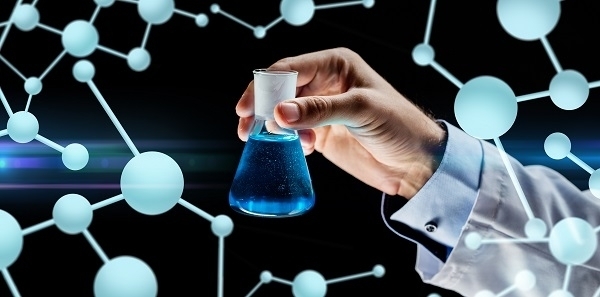Almost 70 percent of global biosimilar market comprised of domestic products
Local "traditional" pharmaceutical firms rush to catch up with big biosimilar players
Several domestic pharmaceutical firms, which used to rely on developing and selling "traditional" pharmaceutical products, are challenging big players in the global biosimilar market.
According to industry insiders, Chong Kun Dang, Dong-A Socio Holdings, and LG Chem, among others, are accelerating biosimilar development.
These latecomers are aggressively investing in the market after having witnessed the success of Samsung Bioepis and Celltrion.

Global biosimilar market rises in popularity with 66% being local products
Biosimilar firms such as Samsung Bioepis and Celltrion have seen critical success in the global pharmaceutical market, serving as a contrast to most domestic pharmaceutical firms.
These domestic pharmaceutical firms have "traditionally" relied on developing and selling traditional medical products.
In contrast, Samsung Bioepis and Celltrion gained ground in the global market by investing in the biosimilar business. The success of these two firms has spurred "traditional" pharmaceutical firms to do likewise.
According to IQVIA data, biosimilar drugs developed by Korean firms made up 66 percent of global biosimilar revenue. These drugs included biosimilars of Remicade (ingredient infliximab), Lantus (ingredient insulin glargine), Enbrel (ingredient etanercept), and Mabthera (ingredient rituximab), among others.
In particular, infliximab biosimilars made by Korean firms recorded sales of 1,150 billion won, accounting for 99 percent of all such biosimilars.
Etanercept biosimilars made by Korean pharma recorded sales of 530 billion won., making up 98 percent.
Korean firms started producing and selling rituximab biosimilars last year. Rituximab biosimilars amde by Korean pharma recorded 90 billion in sales, marking 66 percent.
"The success can be attributed to firms quickly switching R&D investment from an oversaturated first-generation biosimilar market to promising fields of TNF alpha inhibitors and monoclonal antibodies," IQVIA explained.
Traditional pharma plays 'catch up' by accelerating R&D investment
Chong Kung Dang has named CKD-11101, the world's first biosimilar version of novel erythropoiesis stimulating protein (NESP), as "Nesbell" and expended efforts into entering the market.
Chong Kun Dang obtained manufacturing and sales approval for Nesbell in Japan last year and said it plans to expand the number of approvals by entering various countries this year.
Nesbell is a NESP biosimilar with darbepoetin as the active ingredient. Nesbell proved comparable efficacy and safety to the original NESP in a phase 3 trial conducted in 2017.
"Nesbell is the biosimilar of NESP and the company's first biological product," a Chong Kun Dang spokesperson told the Medical Observer. "We will speed up entry into the global market of 3.6 trillion won, having successfully entered the Japanese market that is about 550 billion won."
Aside from Nesbell, Chong Kun Dang is conducting a phase 3 trial on CKD-701, which is a biosimilar of Lucentis (ingredient ranibizumab).
Chong Kun Dang also announced that it finished preclinical trials for CKD-7025, a new anti-cancer dual antibody biosimilar, having been selected by the Korea Drug Development Fund for development.
Dong-A Socio Group said it would also develop biosimilar drugs through DMBio, a joint venture with Japanese firm Meiji Seika Pharma, and Dong-A ST.
The firm said that it began phase 1 trials in Europe for DMB-3115. DMB-3115 is a biosimilar for Stelara (ingredient ustekinumab). The drug was co-developed with Meiji Seika Pharma last year.
Through DMBio, Dong-A is developing biosimilars of blockbuster products such as Herceptin (ingredient trastuzumab) and Eylea (ingredient aflibercept).
In 2017, Dong-A had signed a memorandum of understanding (MOU) with Alteogen to develop a Herceptin biosimilar. In 2019, Dong-A said it signed a production and distribution contract with Alteogen for ALT-L9, an Eylea biosimilar used to treat macular degeneration.
Dong-A said it is also developing a NESP biosimilar coined DA-3880. DA-3880 gained production approval in Japan, according to the company.
"Dong-A has vast experience in the development and commercialization of first-generation biopharmaceuticals that includes Eporon, Leucostim, and Gonadopin," a company official said. "We will work towards entering the market quickly."
LG Chem began selling its Enbrel biosimilar Eucept for rheumatoid arthritis treatment in 2018.
Eucept gained approval to treat rheumatoid arthritis, psoriatic arthritis, axial spondyloarthritis and psoriasis. It is also the first biosimilar product made by LG Chem.
Long-term clinical trials of 370 patients with rheumatoid arthritis in Korea and Japan showed comparable efficacy of Eucept to Enbrel and significantly lower adverse events related to the injection site.
Patients who were treated with the original for 52 weeks and then switched to Eucept also maintained efficacy and safety until the 100th week, the company said.
Against this background, LG Chem is developing a Humira biosimilar called LBAL with Mochida Pharmaceutical. The drug is currently in phase 3 trials.
"Securing biosimilar pipelines will enhance domestic pharmaceutical companies' global competitiveness," an industry insider who requested anonymity said.

